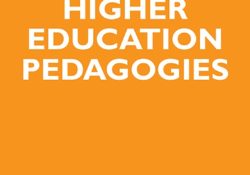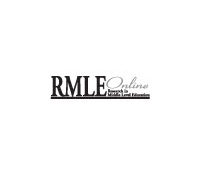eric.ed.gov har udgivet: This collection of lesson plans is designed to help students with disabilities meet Arizona academic standards and learn different types of self-determination skills. Lesson plans are provided for students in grades K-12 with different disabilities and address: (1) oral language, including identifying homonyms; (2) reading acquisition, including teaching reading using the Fernald (VAKT) Method, making words, and fluency; (3) reading comprehension; (4) study skills, including improving test taking skills, managing daily activities, and organizing notebooks; (5) social skills, including social behavior skill development, peer relationships, and giving and receiving compliments; (6) math computation; (7) math problem solving, including balancing checkbooks; (8) written expression, including self-expression, proofreading, and writing conventions; and (9) technology, including using the Internet and team teaching with computers. For each lesson, a targeted academic… Continue Reading →
Like this:
Like Loading...

tandfonline.com har udgivet en rapport under søgningen “Teacher Education Mathematics”: ABSTRACT ABSTRACT We present an empirically based model for teaching about planning in pre-service science teacher education as part of on-campus courses. Planning is usually taught through the introduction of theoretically based planning models, but these models commonly assume a linear idea of planning that does not match how teachers go about planning. We examined how pre-service middle school science teachers planned a 20-minutes microteaching lesson on sustainable development. Six groups of pre-service teachers’ conversations were video recorded, transcribed, and analyzed through practical epistemology analysis and deliberative educational questions, with the aim of extracting empirically based components of a model for teaching about planning. Our results confirm that the pre-service teachers’ planning did not constitute a linear process. However, it… Continue Reading →
Like this:
Like Loading...
eric.ed.gov har udgivet: Introduction: Many students with adventitious vision loss or progressive vision loss need to transition from print to braille as a primary literacy medium. It is important that this transition is handled efficiently so that the student can have continued access to a literacy medium and make progress in the core curriculum. For this study, we used constant time delay to teach literary braille contractions and Nemeth Code for Mathematics and Science Notation (hereafter, Nemeth Code) braille symbols to learners with visual impairments who were making the transition from print to braille. Methods: A single-subject, multiple-probe research design was used to test the effectiveness and efficiency of constant time delay to teach literary braille or Nemeth Code. Three female students, aged 13 to 15 years, participated at a… Continue Reading →
Like this:
Like Loading...

tandfonline.com har udgivet en rapport under søgningen “Teacher Education Mathematics”: ABSTRACT ABSTRACT There have been calls for Science Technology Engineering and Mathematics (STEM) education to become more interdisciplinary, reflecting the reality of contemporary research. However, communicating across disciplines is challenging. In this article, I explore what and how students read in the STEM disciplines`. I provide an overview of key topics in literacy research, and discuss the disciplinary nature of literacy. I compare disciplinary literacy requirements in STEM through thematic analysis of UK quality subject benchmark statements, which identifies considerable variation in the expectations of undergraduates to engage with primary research literature. I explore implications this has for interdisciplinary teaching, and present some published pedagogical strategies for engaging students in research literature. I call on STEM educators to embed inclusive… Continue Reading →
Like this:
Like Loading...

tandfonline.com har udgivet en rapport under søgningen “Teacher Education Mathematics”: Abstract Abstract This case study explored how a social studies teacher and a TESOL teacher collaborated to teach an eighth-grade civics and economics course in a diverse classroom with Latinx emergent bilingual students. The researcher employed a theoretical framework of culturally and linguistically relevant citizenship education (CLRCE), which includes five pedagogical principles: pedagogy of community, pedagogy of success, pedagogy of making cross-cultural connections, pedagogy of building a language of social studies, and pedagogy of community-based participatory citizenship. The goals of the study were to identify and understand the perspectives and decision making of the teachers’ pedagogy for Latinx youth. Findings revealed the importance of an effective collaborative relationship and using varied pedagogical strategies to support the growth and success of… Continue Reading →
Like this:
Like Loading...
eric.ed.gov har udgivet: “Teach For America” (“TFA”) is a highly selective route to teacher certification that aims to place non-traditionally trained teachers in high-need public schools. The What Works Clearinghouse (WWC) identified seven studies of teachers trained through “TFA” that both fall within the scope of the Teacher Training, Evaluation, and Compensation topic area and meet WWC group design standards. The WWC considers the extent of evidence for teachers trained through “TFA” on the academic achievement of students in grades pre-K-12 to be medium to large for two student outcome domains–mathematics achievement and English language arts achievement–and small for two student outcome domains–science achievement and social studies achievement. “TFA” teachers were found to have positive effects on mathematics achievement, potentially positive effects on science achievement, and no discernible effects on… Continue Reading →
Like this:
Like Loading...
eric.ed.gov har udgivet: Student achievement and attitudes toward mathematics are influenced by the teacher, emphasizing the importance of quality teacher preparation. This study explored different preparations and the impact on pre-service teachers’ pedagogical content knowledge. The sample included 96 pre-service teachers enrolled in a math course at one Midwestern university. Results suggest that field experience combined with other aspects of mathematical teacher preparation impact pre-service teachers’ pedagogical content knowledge for mathematics. (Contains 7 tables.) Link til kilde
Like this:
Like Loading...
eric.ed.gov har udgivet: This research investigates the relative effectiveness (in terms of student tested achievement) of Teach for America (TFA) teachers, and examines the validity of the criticisms of TFA. Specifically, the authors look at TFA teachers in secondary schools, and especially in math and science, where considerable program growth is planned over the next few years. Using individual level student data linked to teacher data in North Carolina, the authors estimate the effects of having a TFA teacher compared to a traditional teacher on student performance. The North Carolina data they employ are uniquely suited for this type of analysis because it includes end of course (EOC) testing for students across multiple subjects. This allows them to employ statistical methods that attempt to account for the nonrandom nature of… Continue Reading →
Like this:
Like Loading...
eric.ed.gov har udgivet: Education professionals, regardless of their specialist area, are broadly aware of the importance of numeracy. Internationally, definitions of numeracy (known elsewhere as mathematical literacy or quantitative reasoning), describe “an individual’s capacity to formulate, employ and interpret mathematics in a variety of contexts… reasoning mathematically and using mathematical concepts, procedures, facts, and tools to describe, explain and predict phenomena… recognising the role that mathematics plays in the world and to make the well-founded judgements and decisions needed by constructive, engaged and reflective citizens.” (Organisation for Economic Co-Operation and Development, 2014, p. 37), or more locally, numeracy is “the knowledge and skills to use mathematics confidently across all learning areas at school and in their lives more broadly… It involves students recognising and understanding the role of mathematics in… Continue Reading →
Like this:
Like Loading...
eric.ed.gov har udgivet: A number of initiatives have been successful in helping teachers change their knowledge and practices in teaching mathematics. This paper reports on the results of a reform effort using curriculum materials as a vehicle for change. The professional development program called “Insights and Investigations” incorporated four types of professional development experiences. Teachers met monthly in grade-level sessions with one of three mathematics educators on the Delaware SSI/PRoject 21 staff in order to get collegial support and encouragement as they implemented “Investigations” in their classrooms. According to the teacher participants, the combination of utilizing “Investigations” curriculum units in the classroom, having the opportunity to do “Investigations” with their colleagues before teaching it in the classroom, reflecting on their teaching and on student learning through written reflections and discussions,… Continue Reading →
Like this:
Like Loading...


